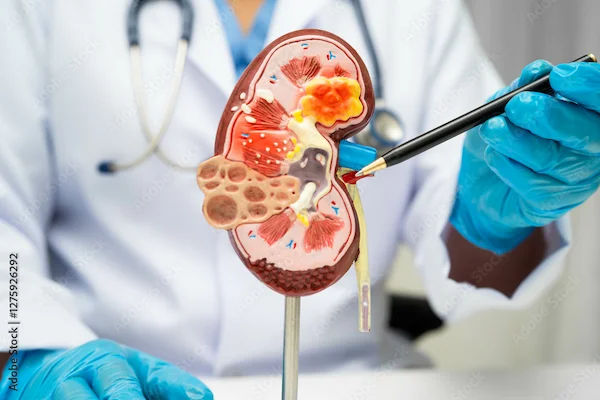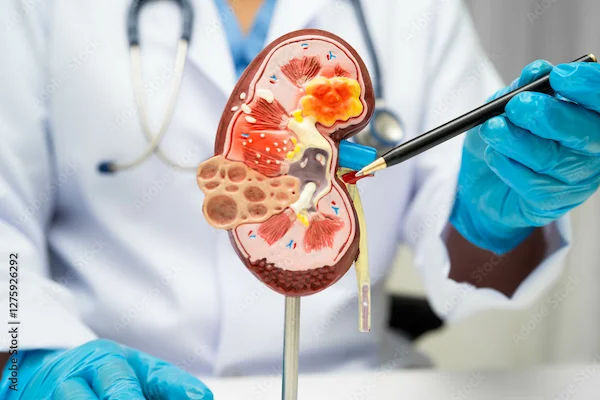How Long Does A Kidney Transplant Take?
How long does a kidney transplant take? Learn about the 3-4 hour surgery, the typical 3-7 day hospital stay, and the overall recovery process spanning weeks to months, including wait times.

Written by
Last updated on 14th Jul, 2025
_4.webp)
Introduction
If you or a loved one is considering a kidney transplant, you may wonder how long the procedure takes and what to expect. A kidney transplant is a lifesaving surgery that can significantly improve the quality of life for people with endstage kidney disease. Let’s break down the process in simple terms so you can feel more informed and prepared.
Understanding Kidney Transplant Surgery
A kidney transplant involves replacing a diseased or nonfunctioning kidney with a healthy one from a living or deceased donor. The surgery itself typically takes 3 to 4 hours, but the entire process—from preparation to recovery—can span several hours or even days.
Step-by-Step Breakdown of the Transplant Process
1. Pre-Surgery Preparation (1–2 hours before the operation)
You’ll be given anesthesia to ensure you don’t feel any pain during the procedure.
The medical team will place an IV line and monitor your vital signs.
2. The Transplant Surgery (3–4 hours)
The surgeon makes a small incision in your lower abdomen.
The new kidney is carefully placed and connected to your blood vessels and bladder.
Your own kidneys are usually left in place unless they’re causing complications.
3. Recovery in the Hospital (5–10 days)
You’ll spend a few days in the hospital for monitoring.
Doctors will check how well the new kidney is functioning and watch for any signs of rejection.
4. Post-Surgery Recovery (4–6 weeks at home)
You’ll need to take medications (immunosuppressants) to prevent your body from rejecting the new kidney.
Followup visits with your doctor will be necessary to ensure everything is going well.
Factors That Affect the Duration
Factors affecting the duration are:
Type of Donor (Living vs. Deceased):
A living donor transplant is often scheduled in advance, making the process smoother.
A deceased donor transplant may happen suddenly, requiring immediate surgery.
Patient’s Health Condition:
If you have other health issues (like heart disease), the surgery may take longer.
Surgical Complications:
Rarely, unexpected issues may extend the operation time.
Consult Top Specialists for Personalised Tips
Life After a Kidney Transplant
A successful kidney transplant can give you a new lease on life, but it requires lifelong care:
Take Medications Regularly – Immunosuppressants help prevent rejection but must be taken as prescribed.
Follow a KidneyFriendly Diet – Reduce salt, processed foods, and excessive protein.
Stay Active (But Avoid Heavy Lifting) – Light exercises like walking help recovery.
Regular Checkups – Frequent blood tests ensure the kidney is functioning well.
When to Seek Help?
Contact your doctor immediately if you experience:
Fever or chills
Pain around the new kidney
Swelling or reduced urine output
Signs of infection (redness, pus at the incision site)
Need Expert Advice?
If you or someone you know is considering a kidney transplant, consulting a specialist is the best next step. You can book a consultation with a nephrologist or transplant surgeon through Apollo 24|7 for personalized guidance.
Final Thoughts
A kidney transplant is a major procedure, but with proper care, most people return to a healthy, active life. Knowing what to expect can help ease anxiety and prepare you for the journey ahead. Would you like to learn more about kidney health or transplant eligibility? Schedule a consultation today and take the first step toward better kidney health!
Consult Top Nephrologist
Consult Top Specialists for Personalised Tips

Dr. S Bipin Kumar
Nephrologist
13 Years • MBBS, MD General Medicine, DM, Nephrology
Rajamahendravaram
SG KIDNEY CARE, Rajamahendravaram

Dr. Luvdeep Dogra
Nephrologist
10 Years • MBBS, MD, DM (NEPHORLOGY)
Jaipur
Dr Dogras Health Clinic, Jaipur

Dr. Govardhan Gupta
Nephrologist
15 Years • MBBS, DNB General Medicine, DrNB Nephrology
Mumbai
Oscar Superspeciality Hospital, Mumbai

Dr. Siddharth Herur
Nephrologist
4 Years • MBBS, MD General Medicine, DM Nephrology
Kurnool
Medicover hospital and Gurudatta poly clinic, Kurnool

Dr. Anantha Rao
Nephrologist
7 Years • MBBS, DNB (General Medicine), DNB (Nephrology)
Kurnool
Aakash hospital and KIMS hospital, Kurnool
Consult Top Nephrologist

Dr. S Bipin Kumar
Nephrologist
13 Years • MBBS, MD General Medicine, DM, Nephrology
Rajamahendravaram
SG KIDNEY CARE, Rajamahendravaram

Dr. Luvdeep Dogra
Nephrologist
10 Years • MBBS, MD, DM (NEPHORLOGY)
Jaipur
Dr Dogras Health Clinic, Jaipur

Dr. Govardhan Gupta
Nephrologist
15 Years • MBBS, DNB General Medicine, DrNB Nephrology
Mumbai
Oscar Superspeciality Hospital, Mumbai

Dr. Siddharth Herur
Nephrologist
4 Years • MBBS, MD General Medicine, DM Nephrology
Kurnool
Medicover hospital and Gurudatta poly clinic, Kurnool

Dr. Anantha Rao
Nephrologist
7 Years • MBBS, DNB (General Medicine), DNB (Nephrology)
Kurnool
Aakash hospital and KIMS hospital, Kurnool


_8.webp)

_11.webp)